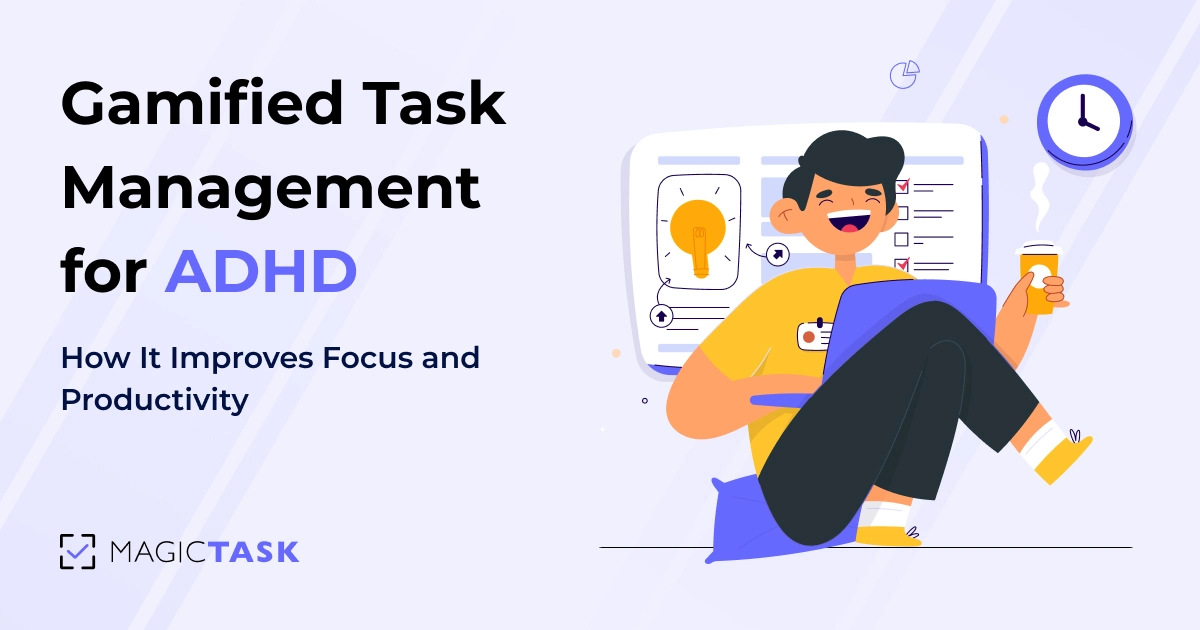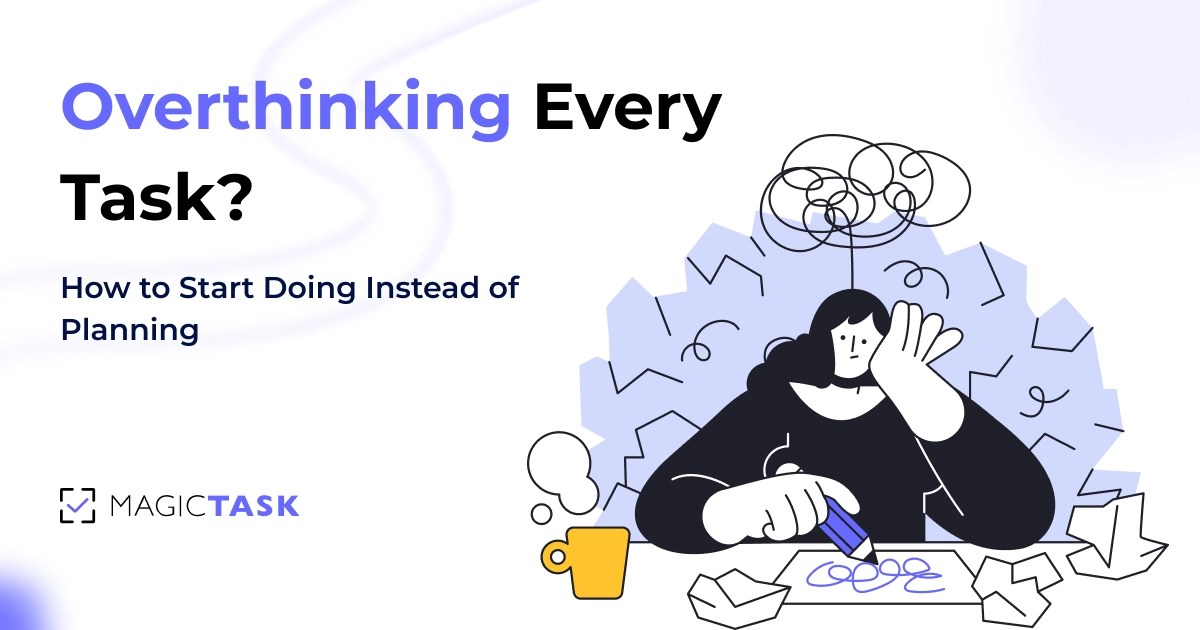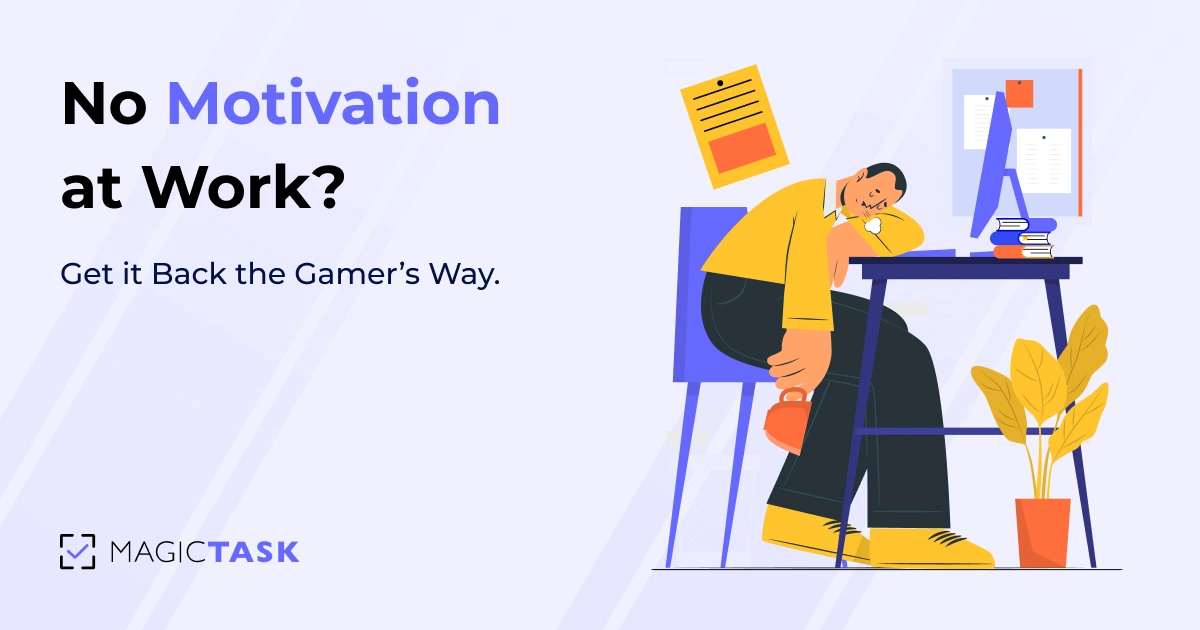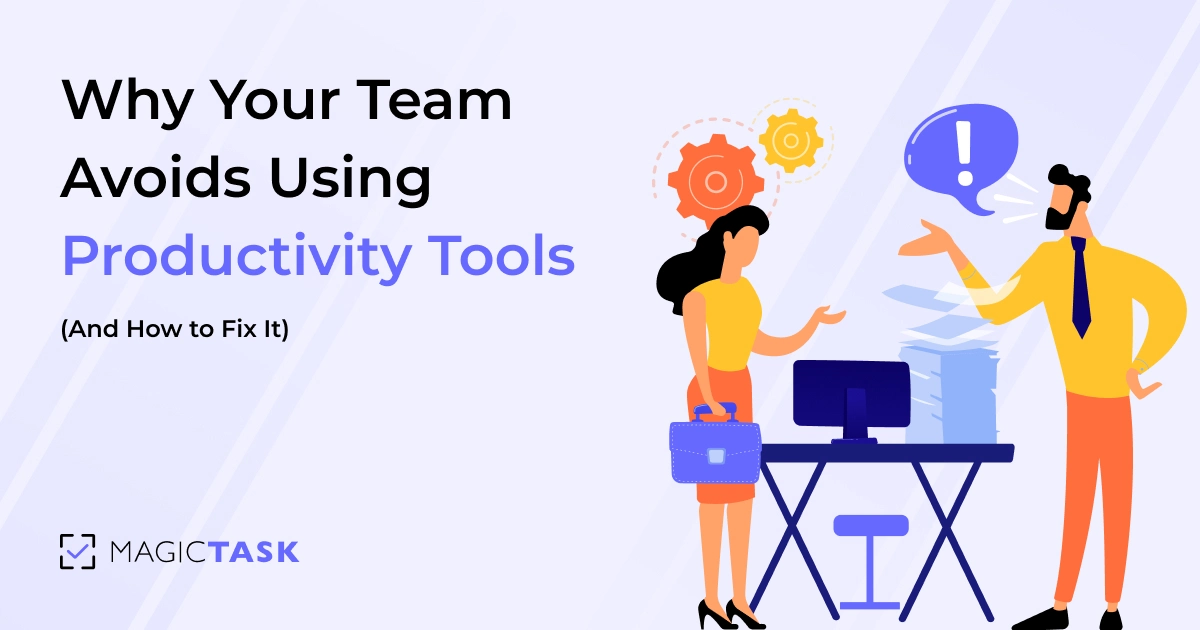The Impact of Stress on Productivity and How to Avoid It
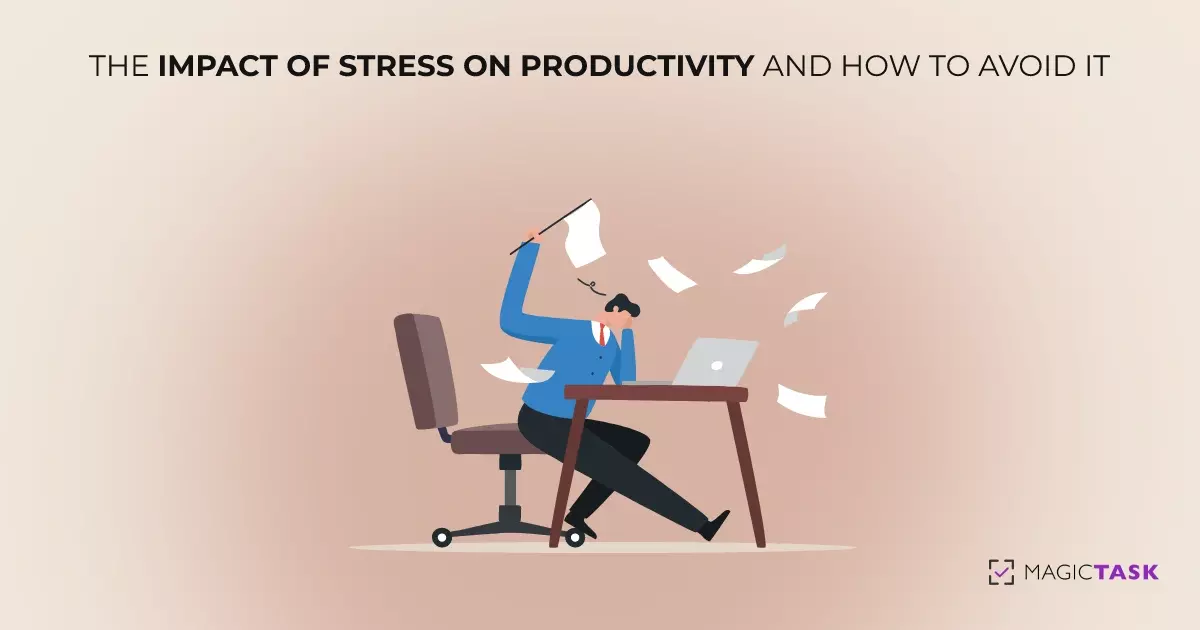
Stress is one of the biggest roadblocks to productivity.
Many studies have shown how stress makes tackling our tasks and reaching our goals difficult. It can significantly slow down our daily habits and impact our careers and business.
In fact, not being able to get our tasks done can further increase our stress and create a vicious cycle.
But how do we overcome this stress? How do we get back to our tasks and get them done when dealing with a lot of pressure?
This blog post explores how stress affects our productivity and how we can avoid it. Read on to learn more.
How Does Stress Affect Productivity
Stress is a natural part of life and can sometimes be a good thing, as it can motivate us to perform better or meet deadlines. However, when stress becomes chronic or overwhelming, it can have a negative impact on productivity.
Here are some of the signs which show how stress is impacting productivity.
Stress makes it difficult to focus.
When we're under a lot of stress, we tend to focus on the stress and not on what we are doing or trying to achieve. Our minds will constantly be going through everything stressing us out; it could be about our jobs, our mortgages, our kids' education, or whatever is bothering us.
Stress also increases our cognitive load; we'll have little space to focus on one more task. We'll also be easily distracted by the slightest stimulus sending us off and forcing us to think about our worst nightmares. Because of this, we'll struggle to complete our tasks even if we sit down to do them.
It can impact your physical health.
Stress can significantly increase our blood pressure and the risk of coronary heart disease and other lifestyle problems. Several studies have shown strong correlations between workplace stress and events like heart attack and stroke.
Over time stress can also contribute to high cholesterol levels, gastrointestinal problems, eating disorders, and joint pain. There's strong evidence that long-term stress can trigger diabetes.
When stress starts affecting our physical health, we'll find it difficult to complete our tasks on time and reach our goals.
High-stress environments can also cause mental health issues like anxiety, depression, burnout, and other issues. Many professionals often turn to substance abuse, alcoholism, smoking, and other unhealthy coping mechanisms.
These can hamper an individual's ability to stay on top of their tasks, bring down their productivity, and create other problems in their lives.
It impacts workplace relationships and can hamper communication.
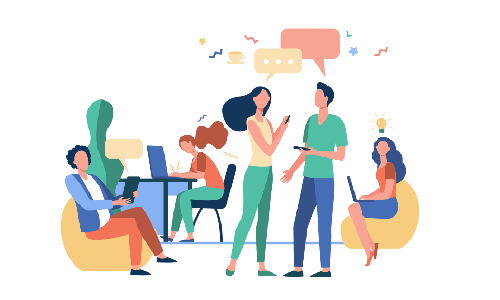
High-stress environments will inevitably take a toll on our workplace relationships. When faced with a lot of pressure, it makes us irritable and short-tempered. A casual 'Hi' or 'How are you?' from a colleague can trigger an unwarranted hostile response. We may not have the time to chat with our colleagues during lunch or make casual conversation during breaks.
This will put a lot of strain on our workplace relationships and make it difficult to communicate well. Communication may become purely transactional or limited to business, and everyone will hesitate before they ask questions.
The unfortunate aspect is that this will further increase our stress. Casual conversations and chitchats usually help relieve our stress, but without that, it can compound it. And, of course, difficult communication will slow our lives and affect productivity.
It makes it difficult to see the bigger picture.
When you've got a lot of tasks to handle in little time, or you're being asked to do something you're unfamiliar with, we'll try to put all of our energy into them. We'll view them through a small lens and not see how it relates to our lives and long-term goals.
This makes it difficult to prioritize our tasks and decide which ones to tackle first. For example, when we have an inbox full of emails to reply to, we would just want to get them over with it. We'll probably take on the tasks that first come to our mind or were assigned to us.
When we don't have the time or energy to take a step back and look at the bigger picture, we'll inevitably make mistakes that will hamper our productivity further.
It's challenging to be creative when you're under stress.
Creativity is not a switch you can turn on and off. Good ideas come out of calm, low-pressure environments when our minds are clear and have the energy. This is often why it's challenging to overcome writer's block; when we cannot write, we become more stressed, making it harder to come up with good ideas.
The lack of creativity impacts our productivity, even if we are not artists or writers. We still need a lot of creative energy to do even the most mundane tasks.
Stress makes it challenging to stick to schedules or plans.
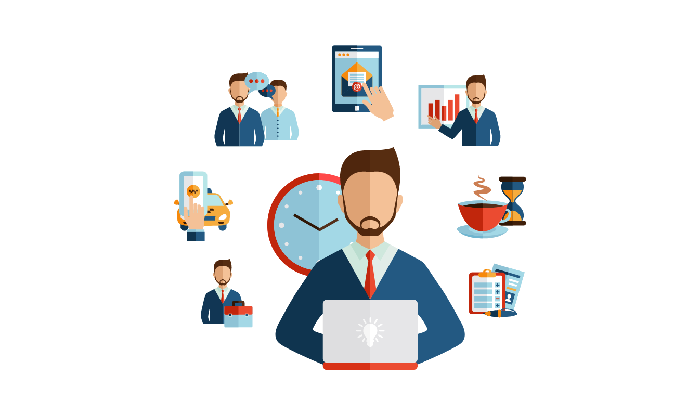
When we are stressed, we find even the simplest tasks intimidating. Even something as simple as doing the dishes or taking out the garbage becomes difficult. Instead, we would sleep through our day or watch a couple of movies.
This is our brains attempting to reduce stress by forcing us not to think about it. Even just thinking about our pending tasks or whatever is triggering us would make us exhausted. This makes us procrastinate our tasks, put them off for another day and make us miss our schedules.
Stress makes it difficult to find joy and find satisfaction in work.
When faced with a lot of pressure, we find it difficult to enjoy even the most fun aspects of our work. Even tasks like planning a party or throwing a baby shower feel like a chore; we just want to do the bare minimum and check it off our list.
Even if the stress is unrelated to our tasks, our mind tries to free up our cognitive space. The result is that we'll try to do our tasks as fast as possible by taking shortcuts and finishing them off. This can affect our quality of work; we may have to undo a lot of it and start from scratch.
How to Avoid Stress and Boost Productivity
Here are a couple of tips that can help you reduce stress in your life and improve your productivity
1. Schedule breaks into your schedule
A well-defined schedule can reduce your stress significantly. One of the most common causes of stress is that you have too many tasks to handle and don't know where to start. When we begin to take on these tasks, we inevitably dive deep into them and forget to take sufficient breaks, which stresses us out further.
When you set your schedules, set realistic goals for yourself. Don't take on more than what you can handle in a day, but don't fill in all of your available time with tasks, either. Make sure you include tasks in your schedule and plan your day, considering your energy levels.
2. Use the Getting Things Done method
Getting Things Done is a productivity method designed to reduce our cognitive load and manage our tasks effectively. The technique encourages practitioners to use alarms, reminders, calendars, to-do lists, and task management tools to avoid storing unnecessary information in their heads. Instead, whenever we get a task, we add all the information related to it to a notepad or a task management tool.
Instead of taking on tasks haphazardly, the GTD method encourages us to create detailed plans based on their importance and whether they will help us reach our long-term goals.
With the GTD methods, we create a second brain to store all our task-related information. The idea is that once we add something to our' second brain,' we forget about it until we have to consider them again.
3. Make sure you're physically well
If we're not physically well, that will contribute to our stress and distract us from our tasks. For instance, if we haven't had lunch or if we didn't get enough sleep, it will stress us out and keep us from being productive.
To reduce our stress or avoid it, we must take care of our bodies. We have to ensure we're having proper nutrition, staying hydrated, and getting enough sleep. Physical fitness will significantly improve our mental health and give us more energy throughout the day. It will help us better cope with stress and seize the day.
4. Try a task management tool
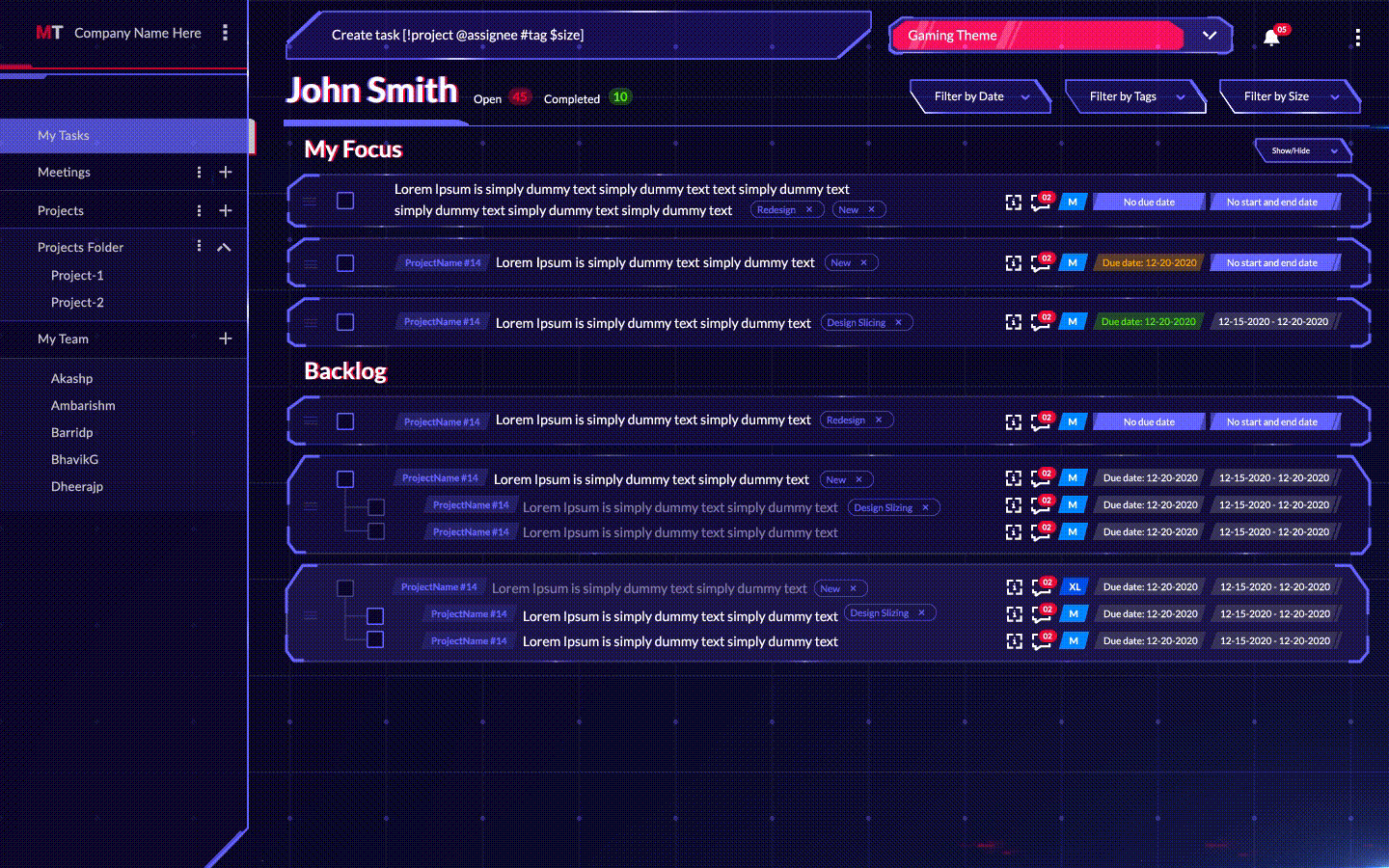
Task management tools can significantly make your lives easier. These tools can give you better visibility and help you prioritize tasks easily.
Tools like MagicTask lets you add your tasks to different projects and collaborate easily with your colleagues or teammates. You can set due dates and priorities for these tasks and quickly decide what you want to take on for the day. It will ensure you're constantly on top of your tasks and avoid stress as deadlines come closer.
In the case of MagicTask, it also comes with many gamification features that let's have a little bit of fun as you go through your day.
5. Invest in your mental health
This may seem obvious, but many professionals often give little importance to their mental health. We must actively invest our time and resources to avoid or reduce stress.
Even if you don't face mental health problems, it may be a good idea to see a therapist to talk about what makes you stressed out. Maybe you're falling into stressful patterns or cannot maintain a proper work/life balance. A therapist can help you offer more clarity and reach your goals better.
There are also plenty of apps and solutions that can help you meditate, relax, and calm down.
6. Build a culture of asynchronous communication at your workplace

Asynchronous communication is a powerful tool that can help you avoid distractions and stay focused. It can help you manage your stress and be more productive.
The technique is relatively straightforward; stick to modes of communication that don't demand the presence of everyone involved simultaneously.
For example, a zoom meeting or a conference call requires that everyone be available at the same time. But with emails, everyone can read the messages at their own pace and contribute when available.
This will help you avoid disturbance when you're working and avoid stressing out and getting stuck in a meeting when you have much work to do. It also allows more flexibility for everyone on your team regarding their schedules.
Reduce Your Stress and Improve Your Productivity With Magictask
As discussed above, MagicTask is a powerful task management tool that can help you plan your tasks better. The platform can give you complete visibility over your tasks and ensure you finish them on time. MagicTask will also help you stay motivated and manage stress through fun and exciting themes and animation.
Check out MagicTask and watch your stress disappear.
